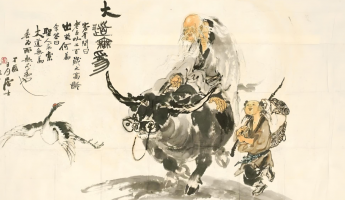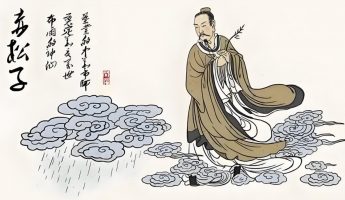Philosophy, as a way of thinking that relentlessly explores boundaries, is essentially about constantly challenging and breaking through existing cognitive frameworks. The ancient Greeks regarded philosophy as a love for wisdom and theoretical contemplation, but with the continuous subdivision and independence of knowledge fields, philosophy needs to define its research areas more precisely.
The uniqueness of philosophy lies in its willingness to “challenge boundaries”, which is not only reflected in the exploration of ontological and epistemological boundaries, but also delves into multiple dimensions such as language and ethics. Unlike daily life and traditional disciplines that strictly adhere to boundaries, philosophy bravely ventures into unknown fields, even though these fields are as dangerous as approaching the sun in Greek mythology.
In the development of philosophy, the breakthrough of ontological boundaries is particularly remarkable. Early natural philosophy, such as Thales’ naive exploration of the universe, opened up humanity’s questioning of the mysteries of nature. Subsequently, Heraclitus and Parmenides deepened their contemplation on the essence of existence from different perspectives. The former emphasized the fluidity of time and the changes in all things, while the latter upheld the absoluteness and invariance of existence.
Socrates shifted his philosophical perspective from the universe to the human world, focusing on political ethics. Although this shift may seem down-to-earth, it is actually a profound reflection on the essence of human life and a brave exploration of the boundaries between wisdom and morality. Plato and Aristotle further enriched the connotation of philosophy. The former built a bridge between the world of ideas and the real world, while the latter deepened the understanding of existence through rigorous logical analysis.
With the rise of epistemology, philosophers began to examine the limitations of human cognitive abilities. Descartes and Hume respectively questioned the reliability of everyday experience and disciplinary knowledge from the perspectives of rationalism and empiricism. Kant systematically delineated the boundaries of human cognition and opened up the vast realm of a priori philosophy, providing a stage for future philosophers to continue exploring the unknown.
In the 20th century, the linguistic turn brought new perspectives to philosophy. Philosophers have revealed the linguistic dilemma of metaphysical issues through in-depth analysis of language logic. Phenomenologists such as Heidegger and Sartre emphasize the direct grasp of everyday experience and oppose the abstraction and conceptualization of philosophy. Later modern philosophers further deconstructed the traditional framework of philosophy, attempting to fundamentally question the legitimacy of philosophy and its role in society.
However, philosophy did not stagnate as a result. Faced with the threat of nihilism and rapid social changes, contemporary philosophers are rethinking the relationship between philosophy, politics, and ethics. Rawls’ theory of justice and Levinas’ ethics are both attempting to provide new value orientations and moral support for modern society.
Marx’s historical materialism reveals to us the profound impact of production technology and modes of production on the boundaries of human life. With the rapid development of technology and the continuous changes in social structure, philosophy will continue to play an important role in exploring boundaries and reflecting on reality. Faced with the upcoming new world and new challenges, the philosopher’s investigation report will undoubtedly become our valuable navigation lighthouse.



